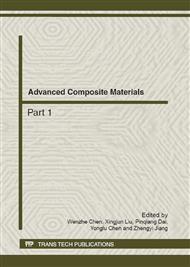p.975
p.981
p.985
p.989
p.996
p.1000
p.1004
p.1012
p.1017
Development of Managerial Creativity
Abstract:
Creativity has been rightfully considered to be one of the main resources of the 21st century. Only the growth of creativity and mobilization of the human innovative potential can secure an access to the reserve that is essential for successful and humane development of economy and society. According to a study by the Institute for Prospective Technology Studies, 70% to 80% of competitiveness and growth of enterprises will be based on new knowledge and skills of employees. This assumption is based on changes in the business environment of the 21st century – the continuing globalization of markets, intensifying competition, improving speed of innovation and the boom of information and communication technologies.
Info:
Periodical:
Pages:
996-999
Citation:
Online since:
February 2012
Authors:
Keywords:
Price:
Сopyright:
© 2012 Trans Tech Publications Ltd. All Rights Reserved
Share:
Citation:


